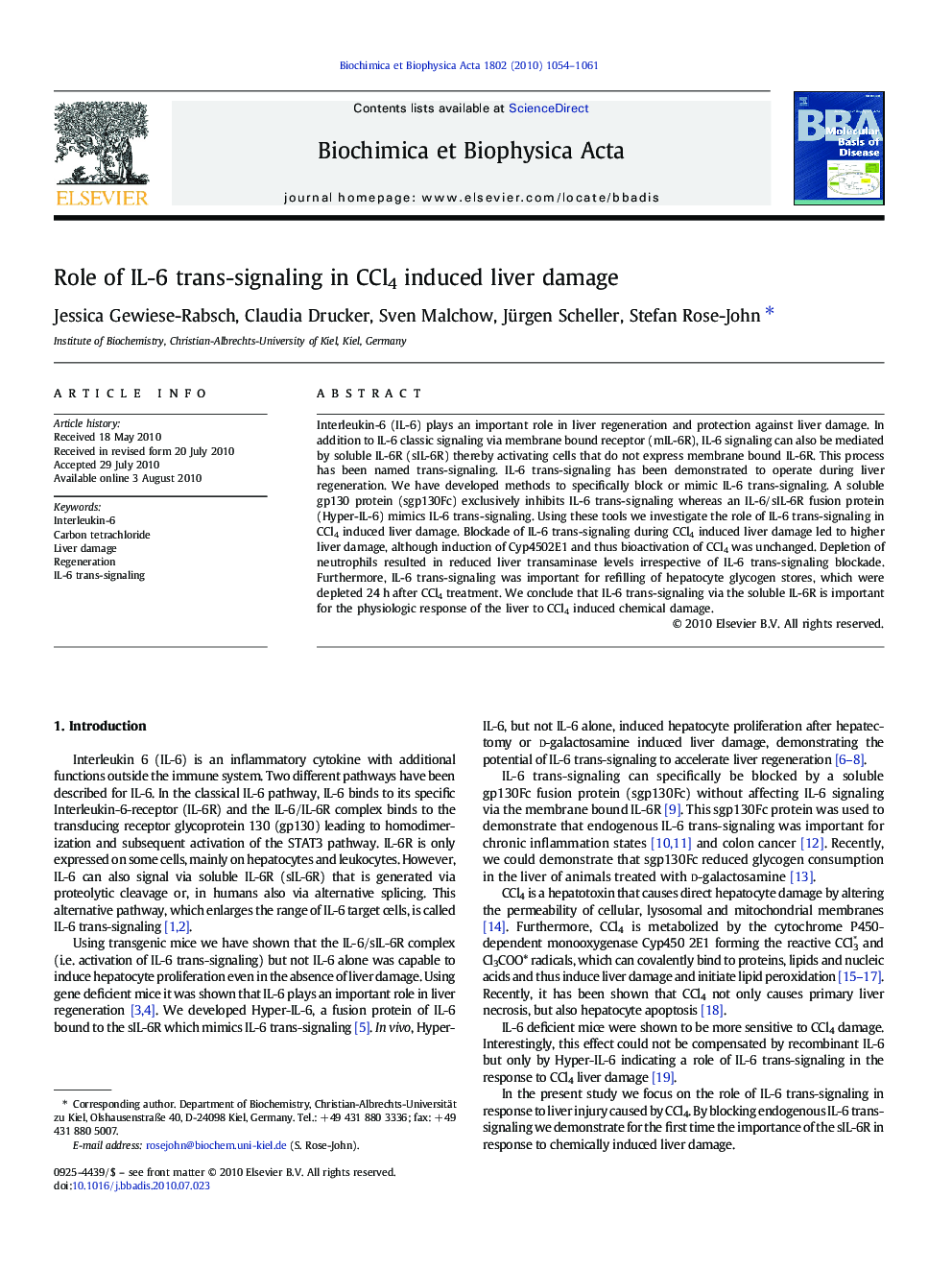| Article ID | Journal | Published Year | Pages | File Type |
|---|---|---|---|---|
| 1905324 | Biochimica et Biophysica Acta (BBA) - Molecular Basis of Disease | 2010 | 8 Pages |
Interleukin-6 (IL-6) plays an important role in liver regeneration and protection against liver damage. In addition to IL-6 classic signaling via membrane bound receptor (mIL-6R), IL-6 signaling can also be mediated by soluble IL-6R (sIL-6R) thereby activating cells that do not express membrane bound IL-6R. This process has been named trans-signaling. IL-6 trans-signaling has been demonstrated to operate during liver regeneration. We have developed methods to specifically block or mimic IL-6 trans-signaling. A soluble gp130 protein (sgp130Fc) exclusively inhibits IL-6 trans-signaling whereas an IL-6/sIL-6R fusion protein (Hyper-IL-6) mimics IL-6 trans-signaling. Using these tools we investigate the role of IL-6 trans-signaling in CCl4 induced liver damage. Blockade of IL-6 trans-signaling during CCl4 induced liver damage led to higher liver damage, although induction of Cyp4502E1 and thus bioactivation of CCl4 was unchanged. Depletion of neutrophils resulted in reduced liver transaminase levels irrespective of IL-6 trans-signaling blockade. Furthermore, IL-6 trans-signaling was important for refilling of hepatocyte glycogen stores, which were depleted 24 h after CCl4 treatment. We conclude that IL-6 trans-signaling via the soluble IL-6R is important for the physiologic response of the liver to CCl4 induced chemical damage.
Research Highlights►Interleukin-6 (IL-6) plays an important role in liver regeneration and protection against liver damage. In addition to IL-6 classic signaling via membrane bound receptor (mIL-6R), IL-6 signaling can also be mediated by soluble IL-6R (sIL-6R) thereby activating cells that do not express membrane bound IL-6R. This process has been named trans-signaling. ►A soluble gp130 protein (sgp130Fc) exclusively inhibits IL-6 trans-signaling whereas an IL-6/sIL-6R fusion protein (Hyper-IL-6) mimics IL-6 trans-signaling. ►Using these tools we investigate the role of IL-6 trans-signaling in liver damage. Blockade of IL-6 trans-signaling during liver damage led to higher liver damage. ►Depletion of neutrophils resulted in reduced liver damage. ►IL-6 trans-signaling was important for refilling of hepatocyte glycogen stores, which were depleted 24 h after CCl4 treatment. ►We conclude that IL-6 trans-signaling via the soluble IL-6R is important for the physiologic response of the liver to CCl4 induced chemical damage.
